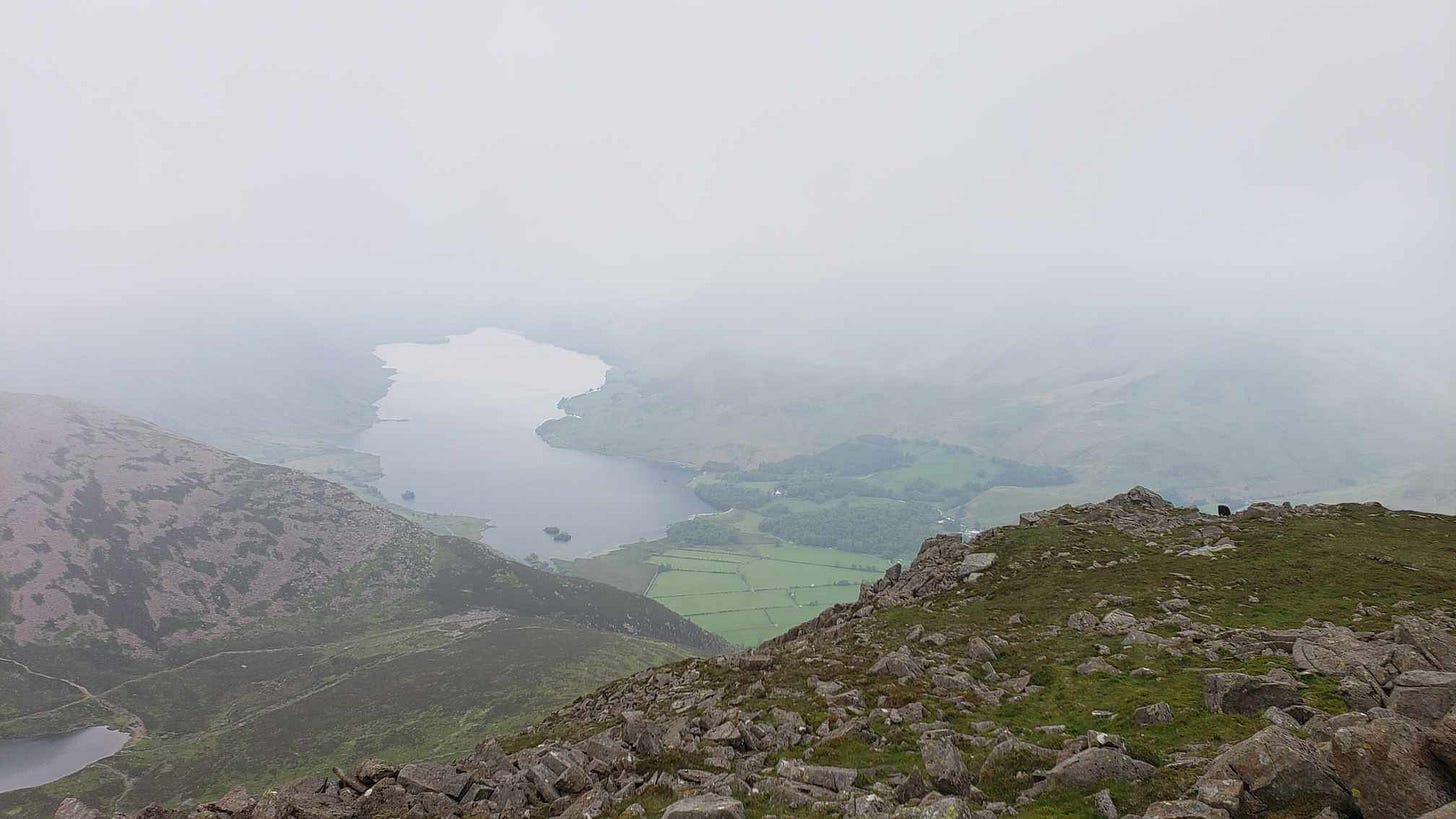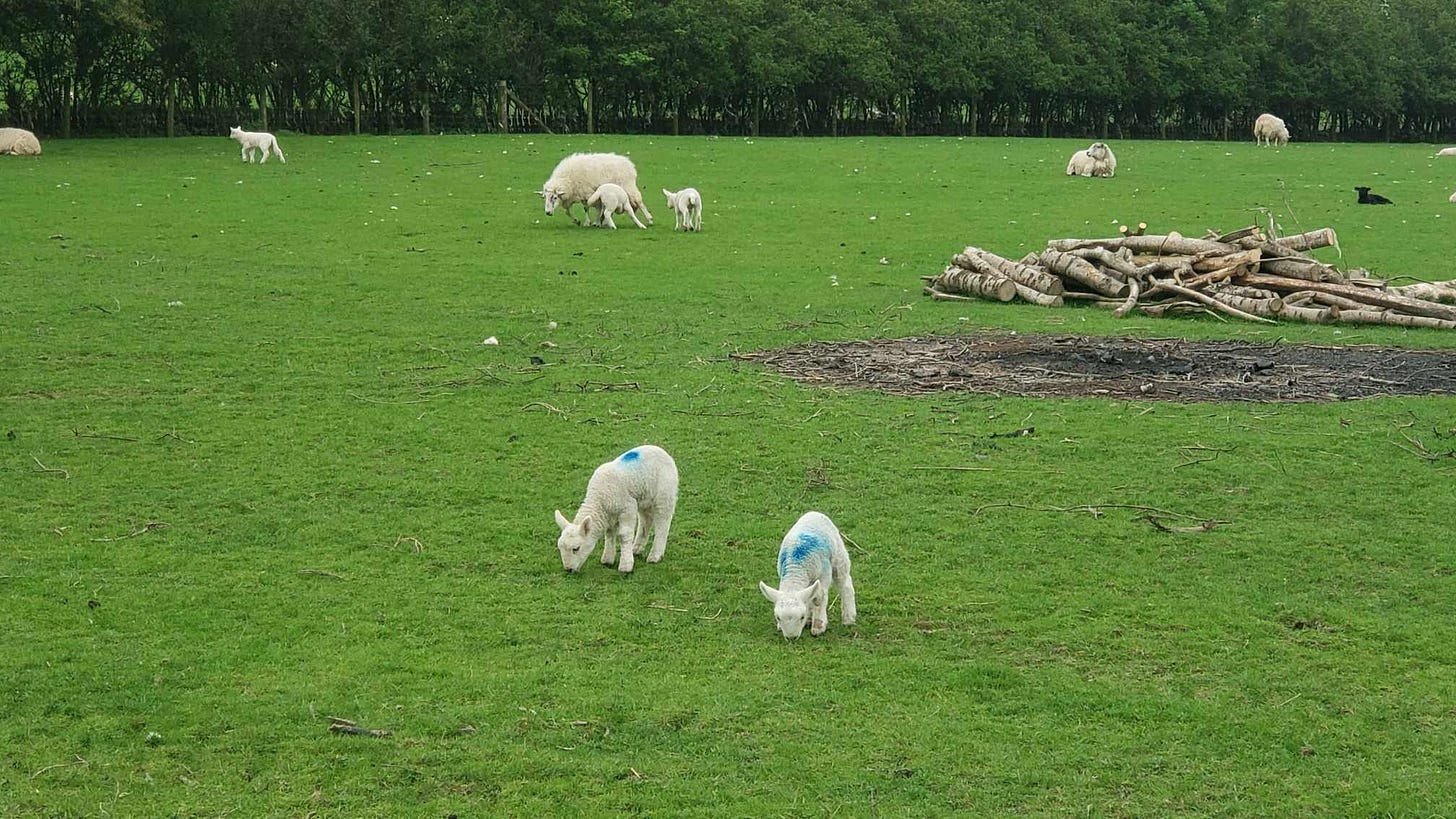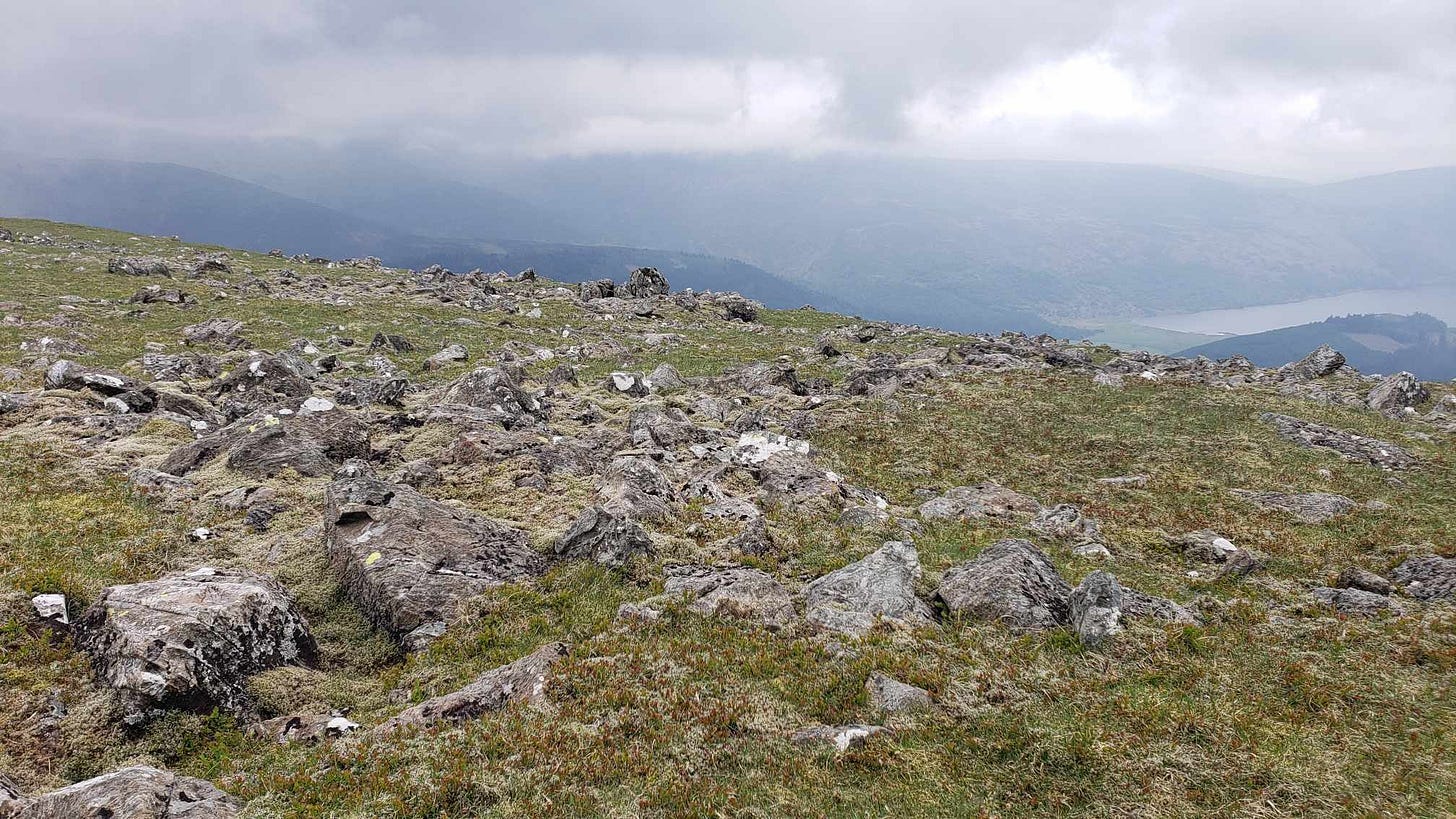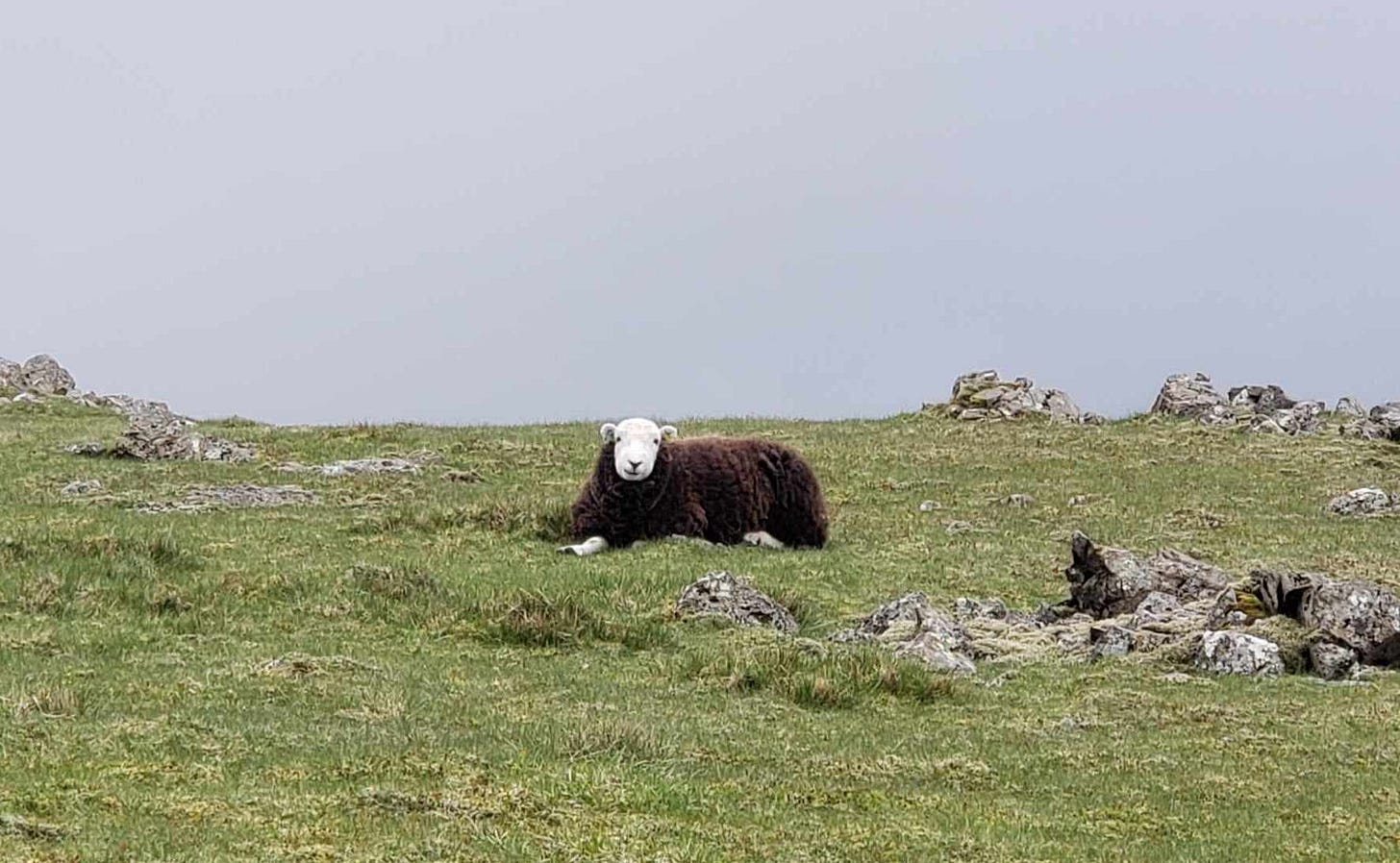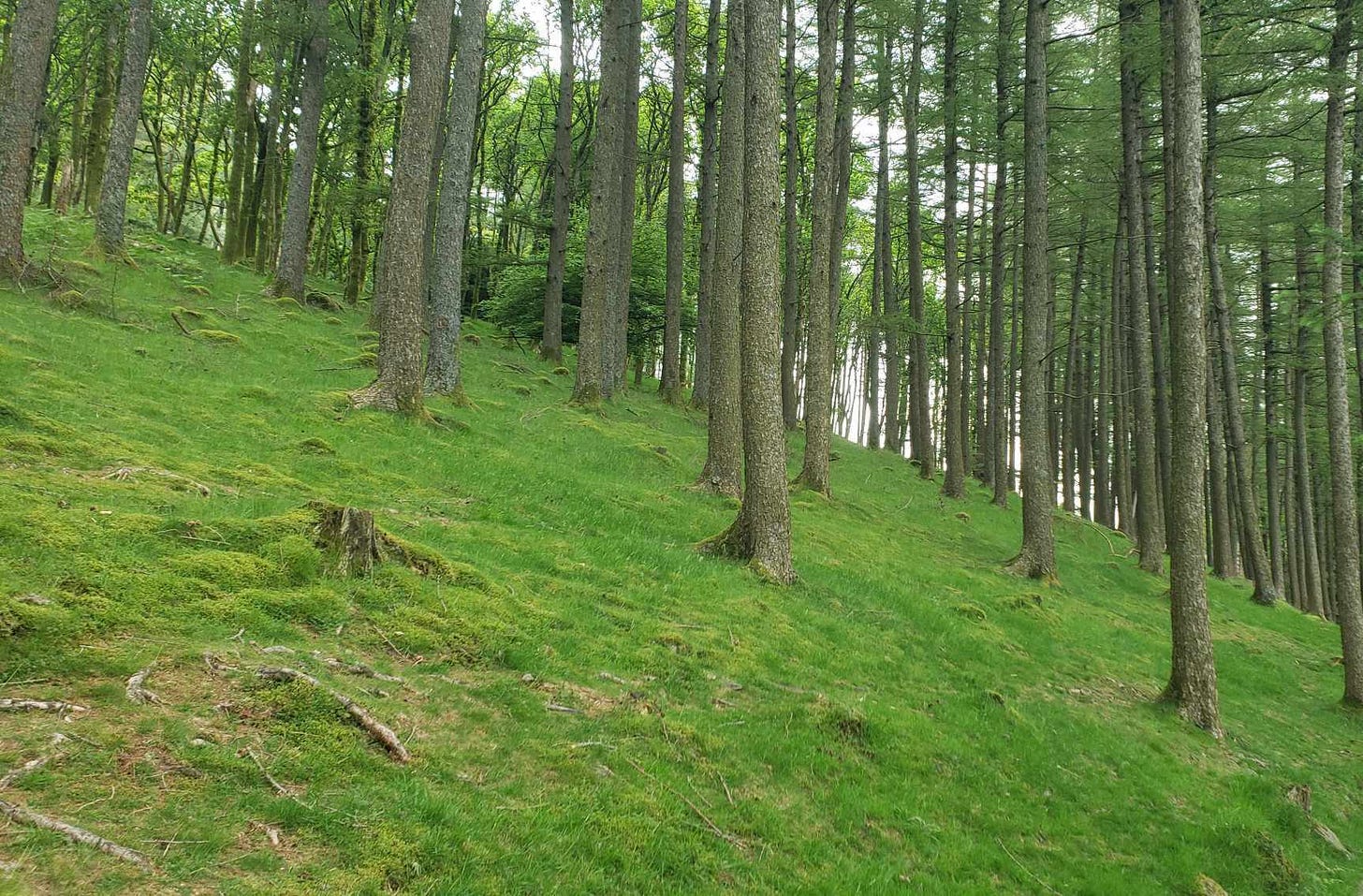Man’s World
“By awesome deeds in righteousness You will answer us, O God of our salvation…who established the mountains by His strength” (Ps. 65:5-6).
Romance in Buttermere, Cumbria
I was panting, each sneaker planted on a granite rock, gazing into the valley a thousand feet below.
“Do you think this is romantic?” His voice floated from a yard further up the mountain.
I turned, laughing. He was referencing a conversation we’d had during our engagement, when he’d been shocked to learn I didn’t find hiking romantic—that I wouldn’t automatically interpret a hike as a date.
Behind him, the hill tipped crazily towards the sky. Rocks poked between feathery grasses.
“Nope. But…” I pointed to the valley. “That’s romantic.”
He stepped down and threaded his arm around me, and we looked together. Smooth slopes—pale green, beaded with stone—dropped towards the silver footprint of the lake. Black and white sheep streaked the fields. Far away, mist draped gauze over mountain peaks.
We had discussed, back then, what romance means for a man, for a woman. Something different for each, we’d decided. For a man, romance means adventure—conquering things, wrangling victory from pain, winning a girl. For a woman, romance means falling in love, drawing a man into her world, finding beauty in his world, at his side.
This matched both descriptions, this thousand-foot view of Buttermere in England’s Lake District. He had hiked the eight-mile mountain path a year and a half ago, scaling and descending it in just four or five hours, and he wanted to beat the peaks again—this time, with his wife. And with him, I had climbed here, to fairyland. This was conquest and beauty, adventure and dreaminess, enough romance for both of us.
I looked at this man, in his brown tweed cap and plaid button-down, with my backpack hanging on him, and knew I would never have come here without him. He had given me this snapshot of fairyland, this rush of fear and delight and strength that comes from grappling the creation.
He had brought me into man’s world.
Man, the Adventurer
Obviously, I’m not suggesting that women dislike adventure, or that some women aren’t more adventurous than some men. Adventure belongs to both sexes.
But in the realm of pictures, stories, and archetypes, Woman isn’t the Adventurer. She marries the Adventurer.
While learning more about my husband, I’ve increasingly understood that Man—the archetypal, fairytale-princely representative of his sex—has a hardness to him, a lust for combat that marks him out as something different from myself. He hunts for enemies to quell. He fights for the seemingly unnecessary triumphs that make life sweeter. He digs stones from the earth, lugs them up a mountainside, and builds a staircase a thousand feet above sea level—just because.
After that, he, or some other man, can hike that mountain with his wife.
Man’s World
My husband and I had set off from the village at 11:30, cutting between fields to reach the mountain.
Sheep grazed on either side of our path—Herdwicks with brown coats and creamy faces; lambs black as soot; white sheep with blue markings on their backs. We laughed at the lambs’ fat, wooly legs, too dumpy for their bodies. The air smelled of manure. British clay clung, tacky, to my running shoes.
Finally, the mountain began with a thousand-foot staircase of flat, gray stones, wedged into the earth centuries ago. We climbed, taking breaks every few hundred feet. Bracken ferns fluttered up the slope, draped over humps of moss. Glossy black slugs scooted near our shoes. Craning my neck, I saw no sky—nothing but tree trunks and green. My heart rate seemed to have permanently increased.
At the top, we rested. Then began the real climb up a steep slope, green and bursting with stones like giants’ molars.
Long ago, men had carved trenches into this mountain and filled them with rocks. We stammered up these makeshift paths, placing our shoes at odd angles that stretched our calves and knees, trying not to slip where water—shining blue and purple on the stones—dribbled from the peaks. It was hard work. I was chatting to my husband, but my mind could barely plan a coherent sentence. It was busy hunting for rocks that wouldn’t shift beneath me.
Halfway up the mountain, we met an elderly British man wearing a T-shirt and carrying a walking stick. He was waiting for his friend. Looking up, we saw a gangly 88-year-old shimmying his way between the rocks, laughing at himself. The two men had hiked this path every year for two decades. They’d already reached the top with a group of other guys, but the older man had tired himself out, so they’d turned back together.
When they’d oared themselves past with their walking sticks, we clambered up to a grassy plateau. Peaks ringed around us, and a lake sank into the earth. I wondered if Ralph Vaughan Williams had been here.
We sank onto a rock and gazed up, to where our path cut across the nearest slope. Near the top, the peaks glowed red—almost vertical, from this view.
Struggling up that cliff was the hardest thing I’ve ever done. The scarp tilted beyond 45 degrees, slippery with clay and loose scree. We crept up 12 or 14 inches at a time, grabbing at stones or crumbled earth, freezing like lizards on the face of the rock. Periodically, I paused for breath, clinging to the mountain like an animal. My palms and fingernails were red with clay.
“I can’t talk right now,” I told my husband in a panicked voice. Then I paused, crouched against the clay, and said, “I feel like I can’t do this.”
“Yes, you can.”
Staring up that red clay scarp, I felt my face contort. I’m not going to cry, I told myself.
Then something entered me—maybe the Holy Spirit—and my legs fought up the slope in a few strides, matching my husband’s.
We straightened, laughing. The mountaintop curved flat, endless, around the valley. Green, flecked with stone, spread in every direction. Mist trailed over the grass. Harsh wind wrapped around us. Our voices fell, and the silence hung dead, sterile, with nothing behind it—like the quietness before life existed.
Slowly, we picked our way between rocks and sheep droppings.
“There’s a reason the British have loads of stone homes, and we don’t,” my husband said. “You could build a castle here, easily.”
“The druids belonged up here. With their pagan altars.”
We picked a pale sweep of grass and tossed ourselves between the stones. Silence sealed around us as I unzipped the backpack, wiped off my clayey hands, and pulled out our lunch: sandwiches with peanut-butter and ginger preserves, four apples, a dark chocolate hazelnut bar.
We ate weakly, arms propped on our legs. I could have swallowed three sandwiches. Across from us, a Herdwick had settled in the grass, chewing its cud in circular motion. It had a wide smile, as though drawn on with crayon.
At 2:00, we struggled up and walked five miles across the mountaintop. Someone had marked the trail with wooden posts every 500 yards or so. I had expected easy going from here, but I was wrong. For hours, we clambered up hills of boulders and down slopes of scree. Stones jutted through the grass and tripped me. Cold drifted around us.
Somewhere behind us tramped a gaggle of men—probably the group we’d heard earlier. They talked loudly in unkempt British accents.
“You eat a salad,” one was saying, “and then you’re sat there thinking, ‘Why am I hungry?’ You need protein.” It sounded much funnier in a British accent.
My husband loved it up here. He stopped once, near the mountain’s edge, and gazed over the valley. Pale green grass sloped downwards. Mist, rocks, and trees dropped below us.
“I…can’t,” I laughed, feeling my tingly feet.
We sank into the grass, and he put his arm around me. I loved it up here, too—yet I didn’t. I can’t describe the sense of isolation, the spastic silence, the palpable stretch of 3,000 feet between us and the earth. For hours, I’d been praying I wouldn’t break a bone. I kept repeating, I will go in the strength of the Lord God. I felt miserably tired, weak, afraid.
I was glad I had come, but I didn’t know how we would get down again.
We did, of course. We slipped and slid our way along a horrific slope of pale scree, and then we scrambled down a rough, flowered field that tipped towards Buttermere—then down a clay path, strung with stones.
At 6:30, we skirted the lake, blue waters hemmed by a mossy forest. We arrived at the pub at 7:00—jubilant conquerors—and waited for our food until 8:00, when it materialized: one gluten-free lamb burger and one steak pie, forgotten and crusty from the warmer. Then we found our rental car, bought Cornish ice cream at the Cockermouth Aldi, and threaded up the mountain to our Airbnb, where we slept the sleep of adventurers.
Man, Wife
Man’s adventurousness seems beautiful to me. It reflects the nature of God, who conquers His enemies and strengthens His people to conquer theirs. “The LORD,” Moses sang, “is a man of war” (Ex. 15:3). David said of the Messiah, “He shall fill the places with dead bodies, He shall execute the heads of many countries” (Ps. 110:6).“By You I can run against a troop,” David insisted, “by my God I can leap over a wall….He teaches my hands to make war, so that my arms can bend a bow of bronze” (Ps. 18:29, 34).
Balancing on a rock above Buttermere, gazing over the satiny lake, I remembered how much strength it had taken to climb up here, and how I couldn’t have done it without my husband, and I was glad because marriage lets men and women enjoy each other’s gifts, close up…




